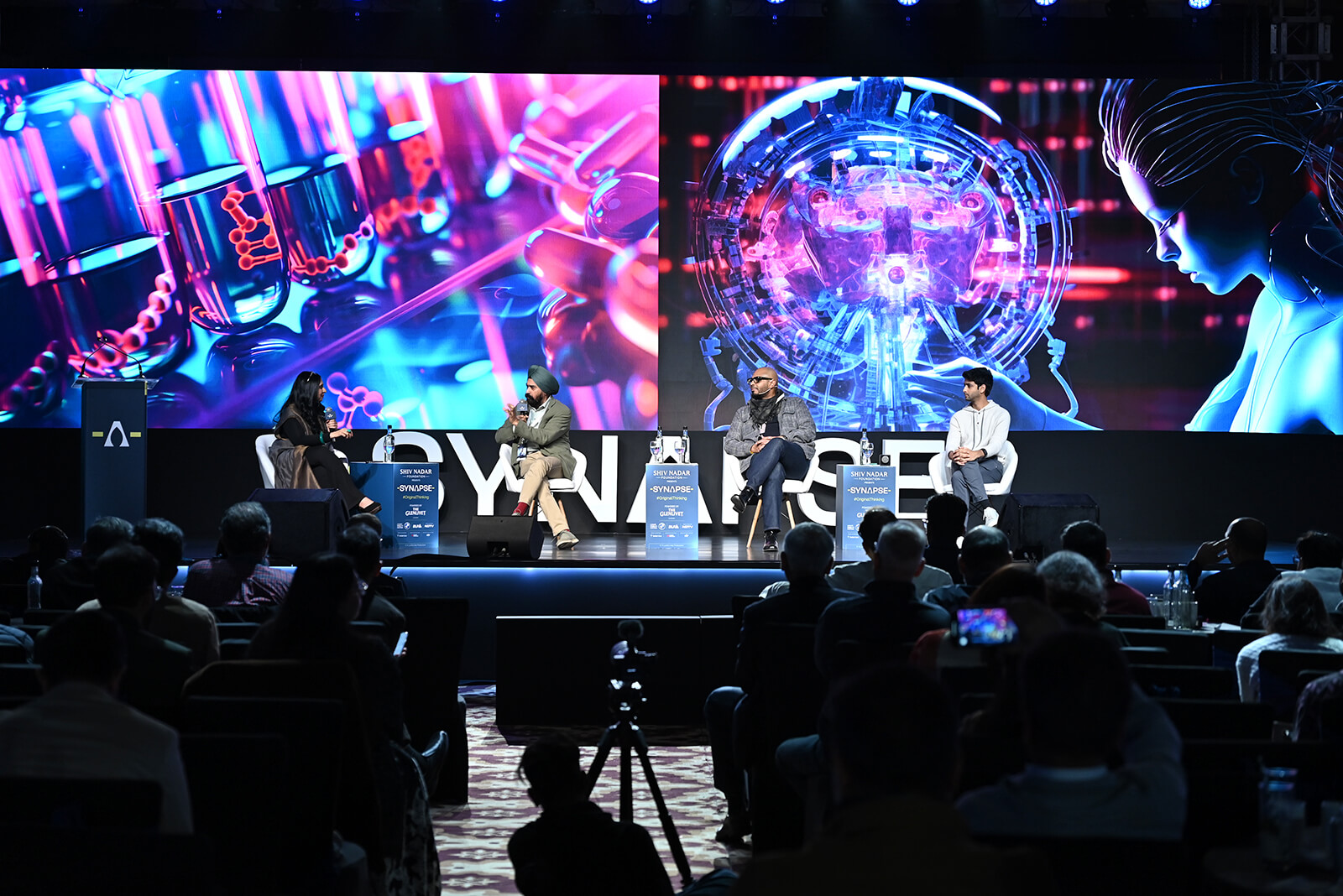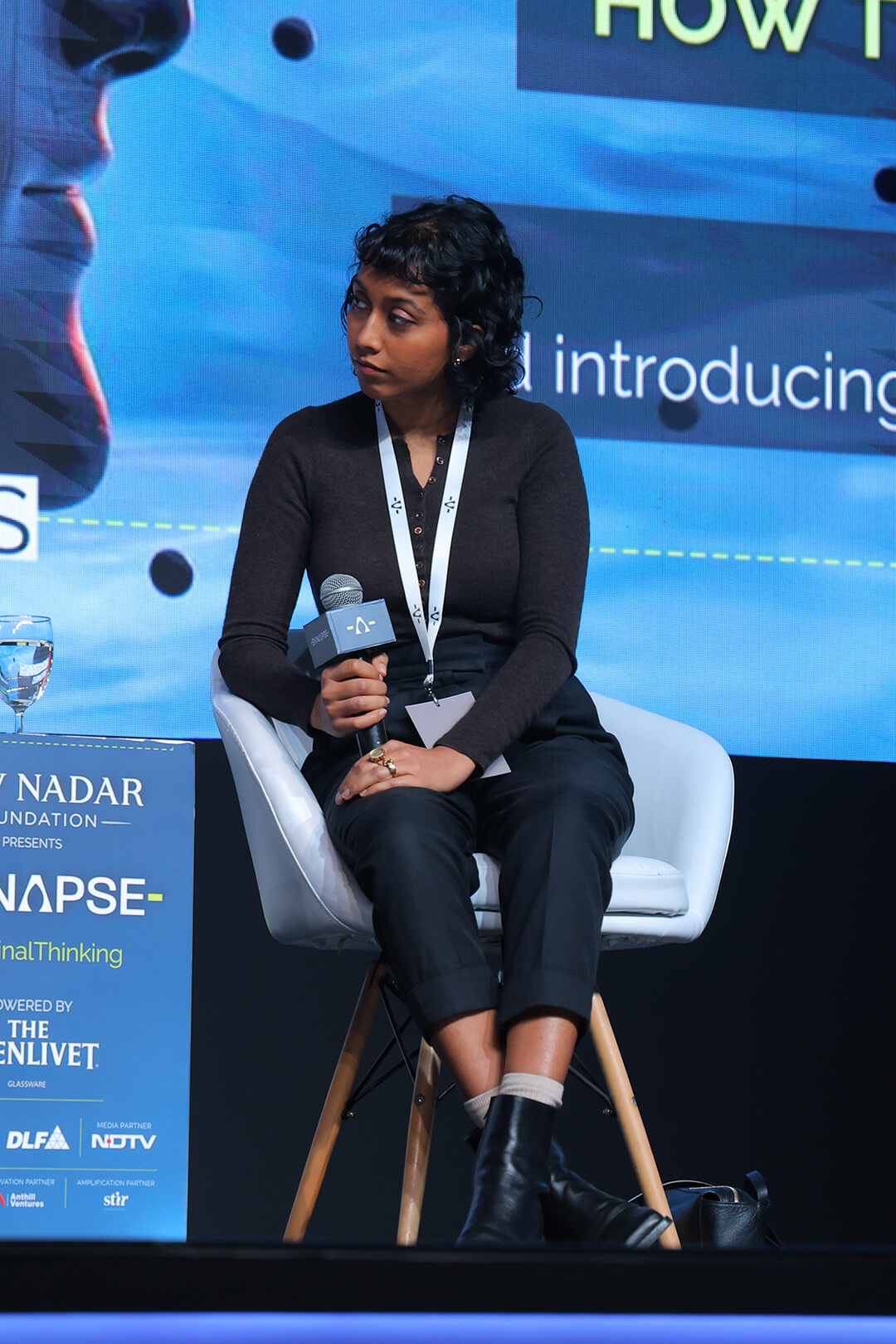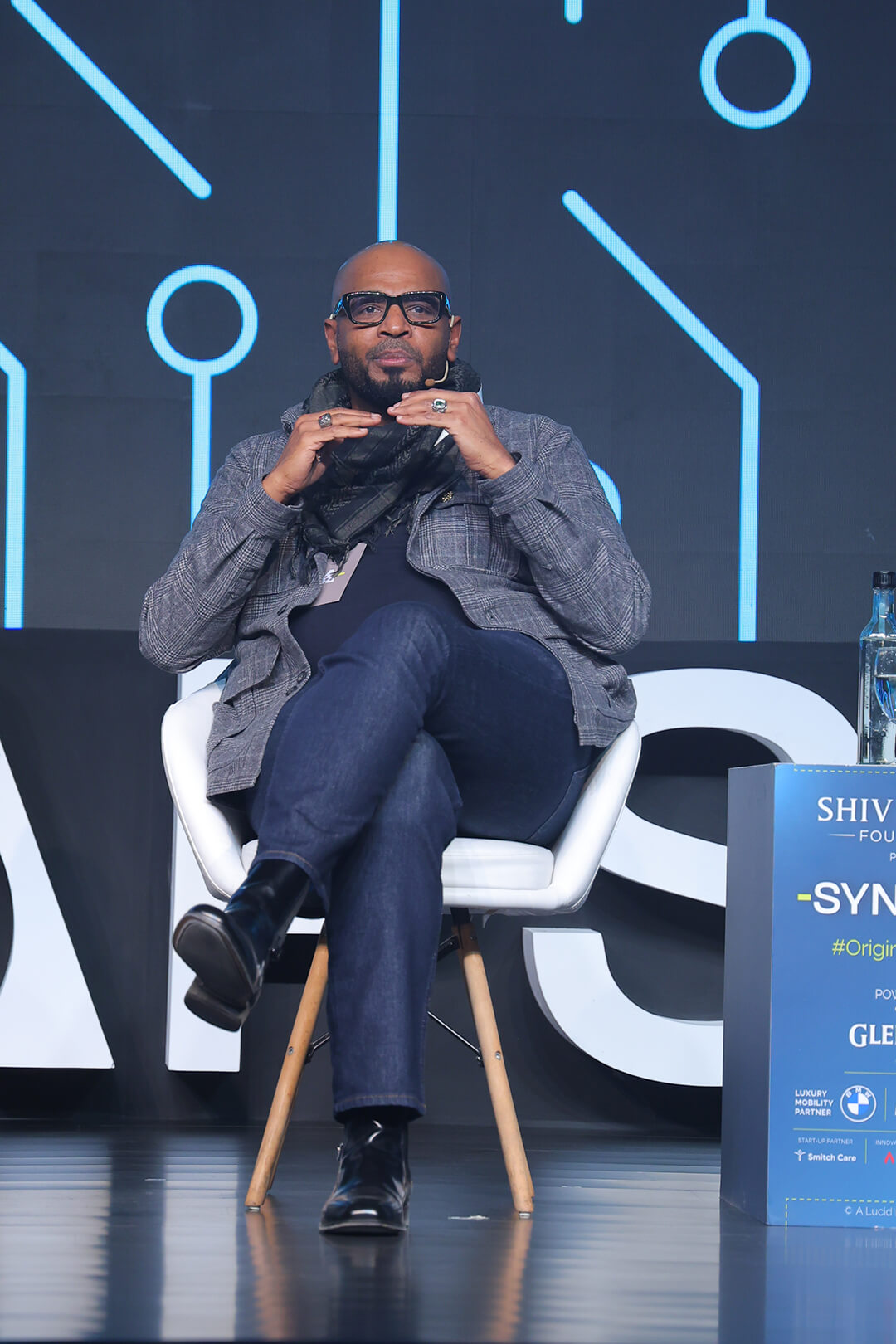The Synapse Conclave 2024, organized by the Shiv Nadar Foundation in Gurugram, New Delhi, India on February 24 and 25, 2024, facilitated dialogues between visionaries and innovators from different sectors to explore the intersection of humans and artificial intelligence. In an evolving technological environment, the two-day conference served as a means to exchange ideas, dissect complexities, address challenges and envision a future where technology enriches the fundamental values of humanity.
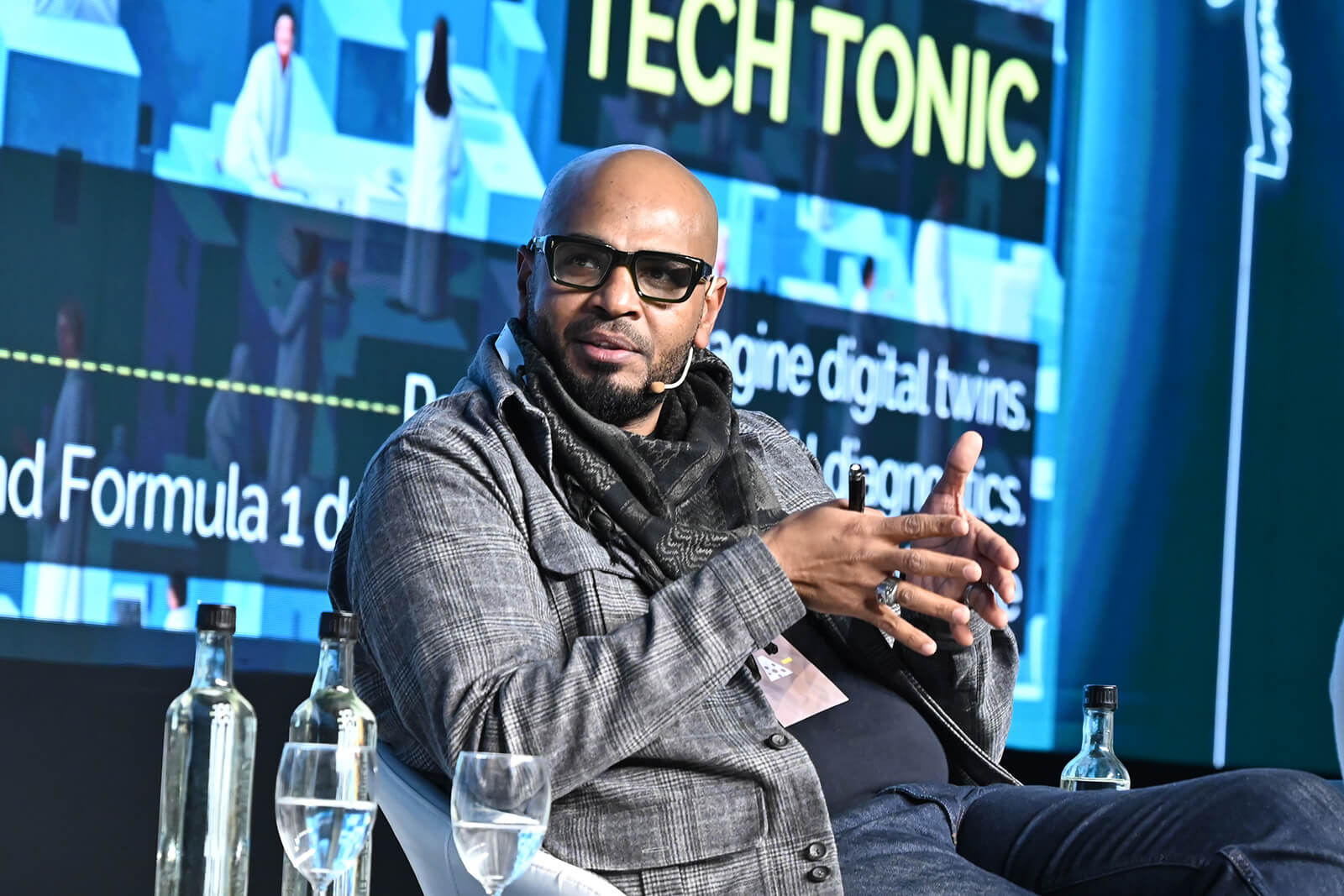
In the evolving fields of AI, technology and wellness, two prominent voices offered compelling perspectives on how AI innovations are reshaping the future of healthcare and frameworks essential ethics to guide their development. Hany Elosman, director of computational medicine and digital health technologies of the pioneering Neom project in Saudi Arabiadove into his vision of a platform inspired by the realms of Formula 1, NASA, and counter-espionage. His exploration of how these areas inform Neom’s healthcare efforts highlighted the potential for technology to revolutionize diagnostics, drug discovery and personalized medicine. By emphasizing the importance of proactive prevention and predictive models, he highlighted the central role of AI in shaping the future of the economy. healthcare design.
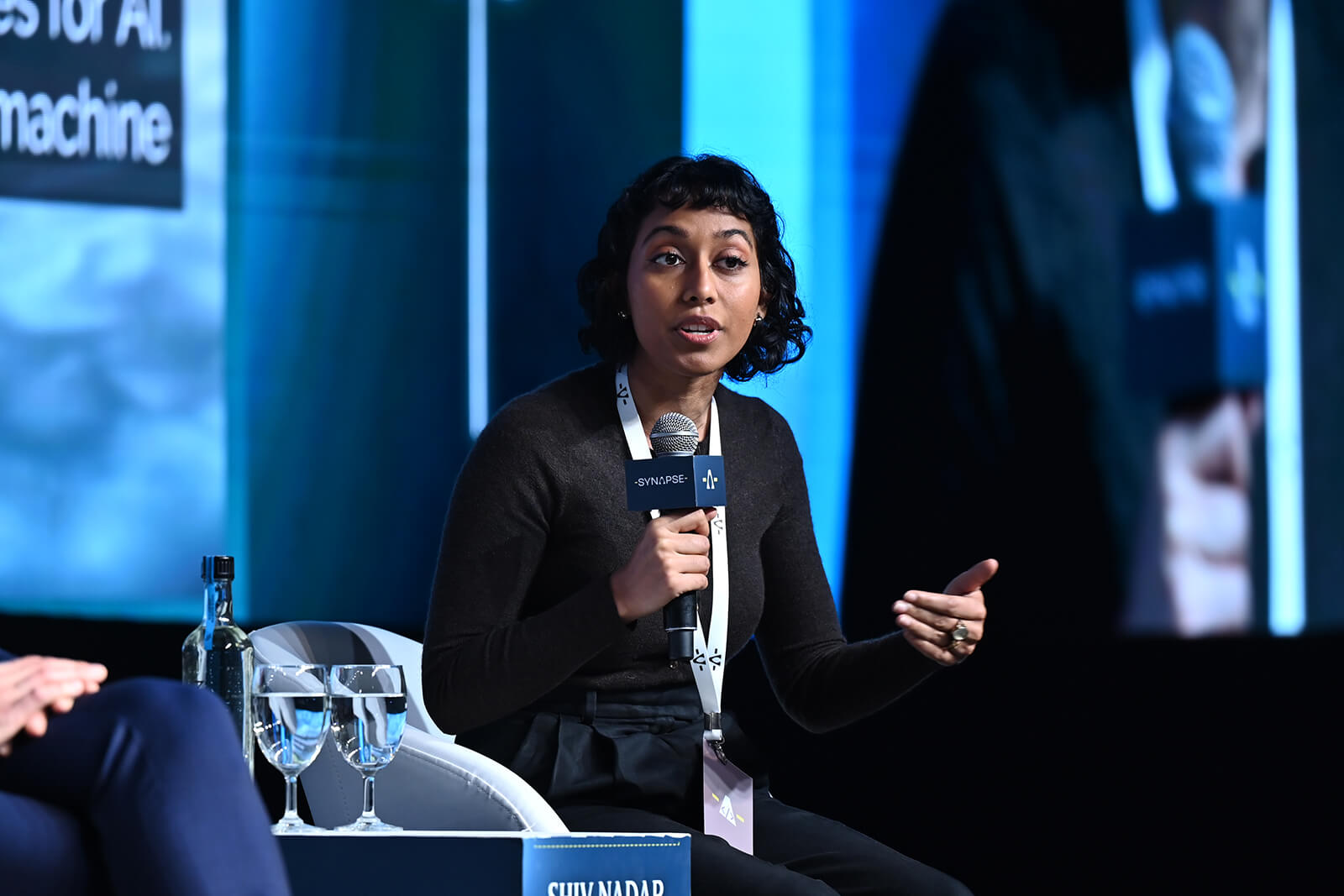
On the other hand, Irene Solaiman, Head of Global Policy at Hugging Face, approached the speech from a different angle, raising crucial questions about aligning culture and values with AI and algorithms. Through compelling examples and case studies, she highlighted the need for robust frameworks that prioritize fairness, transparency and accountability in AI deployment. By fostering an inclusive dialogue on ethics, Suleiman has catalyzed reflections on the societal implications of advances in AI and the imperative to align technological progress with human values. Despite their distinct backgrounds and areas of expertise, the two speakers shared a common commitment to using technology to have a positive societal impact while respecting ethical principles and human values.
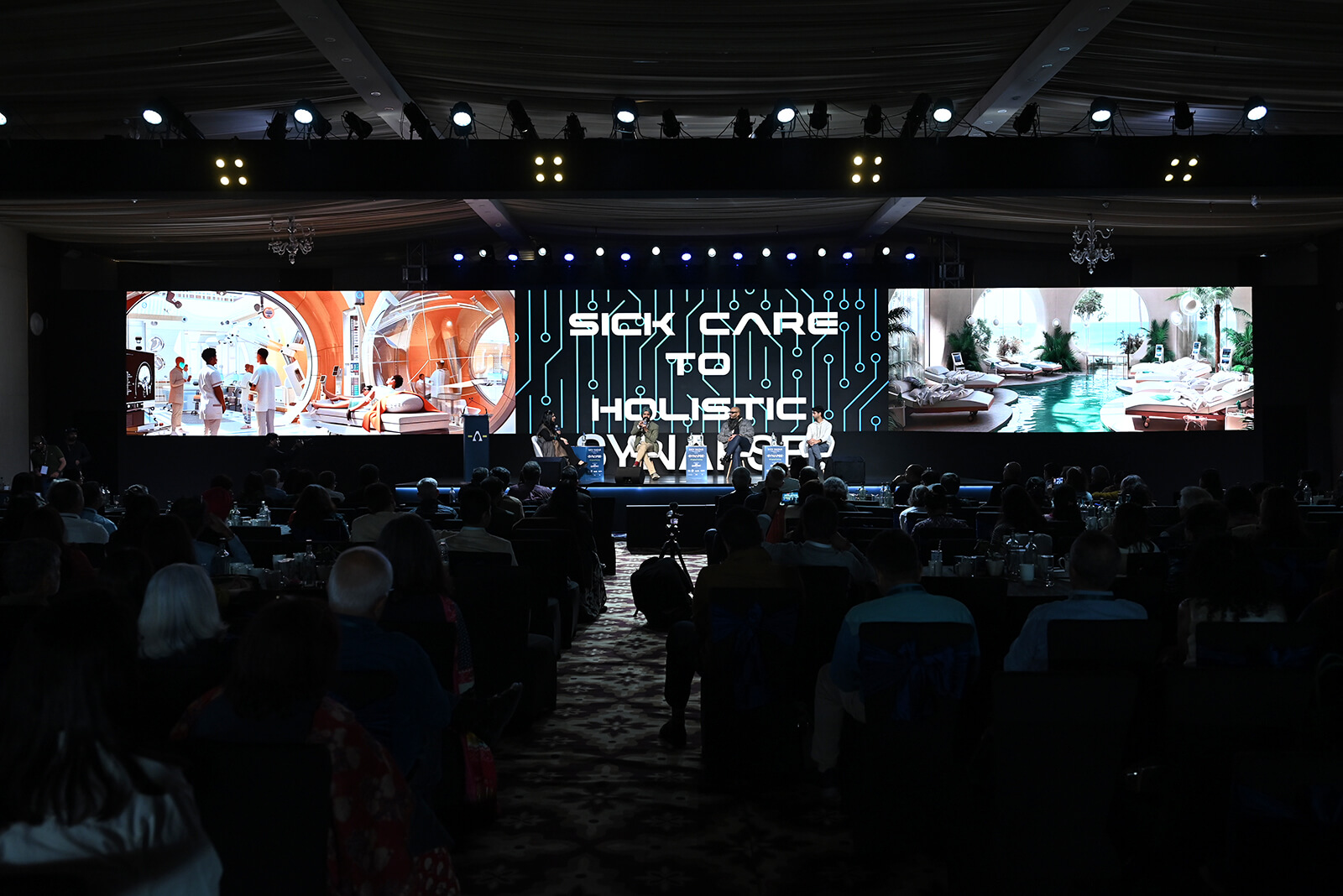
Elosman, a leading authority on computational medicine, envisions a future where health care transcends its traditional boundaries. With a background in clinical laboratory medicine, his journey from diagnostics to data-driven solutions embodies the evolution of healthcare worldwide. the digital age. Within the Neom Project, a flagship initiative in Saudi Arabia, he is leading efforts to integrate cutting-edge technology with clinical expertise, paving the way for proactive prevention and personalized healthcare solutions.
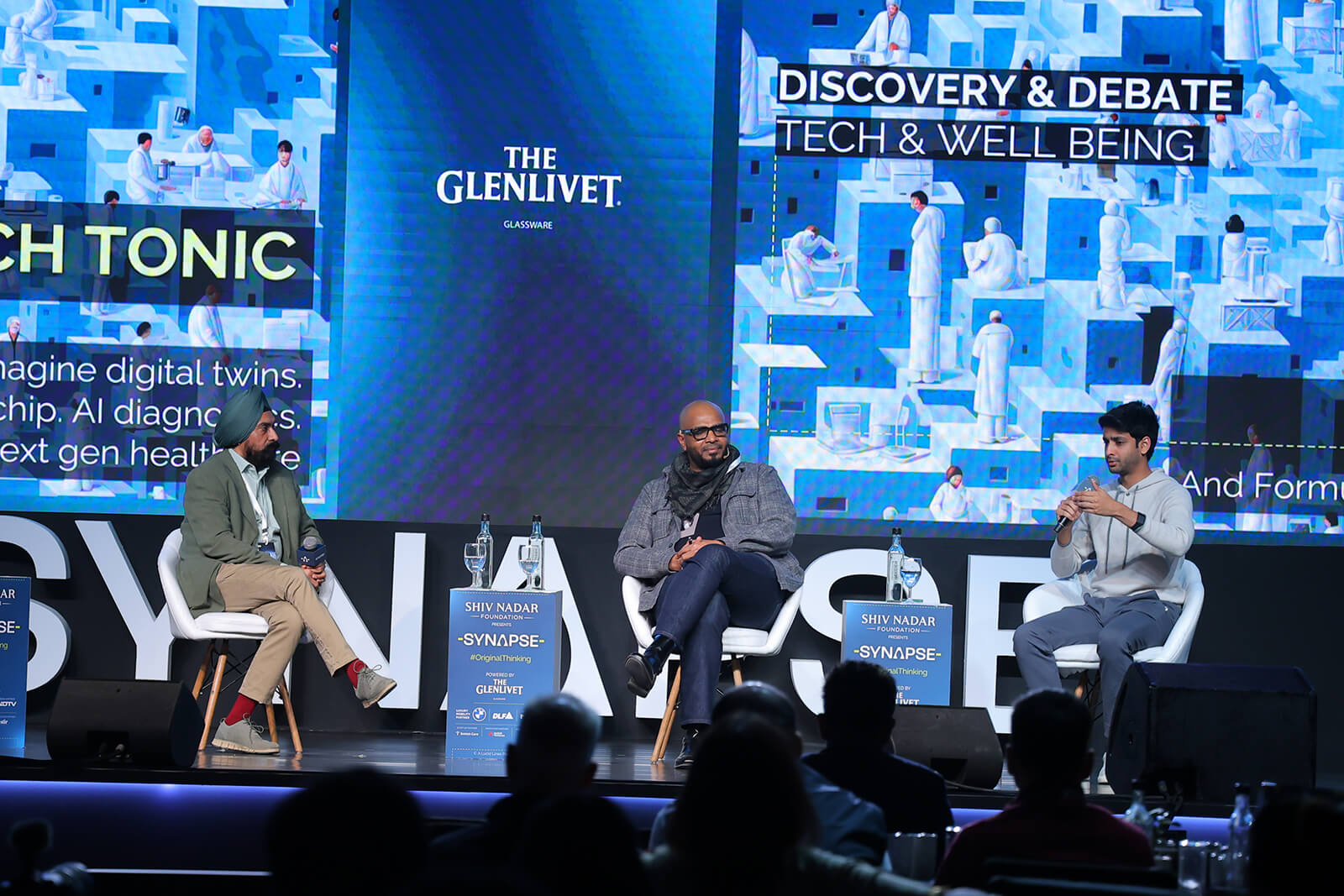
In response to STIR’s query on Neom’s mission to revolutionize healthcare, the speaker highlighted its commitment to proactive prevention, emphasizing the importance of leveraging data and technology to predict and prevent illnesses before they get worse. He spoke passionately about the ethical dilemma of data collection and monitoring, advocating for voluntary data sharing and the need to demonstrate the value of this information to patients. His ideas highlighted the importance of a symbiotic relationship between patients and healthcare providers, based on trust, transparency and mutual benefit.
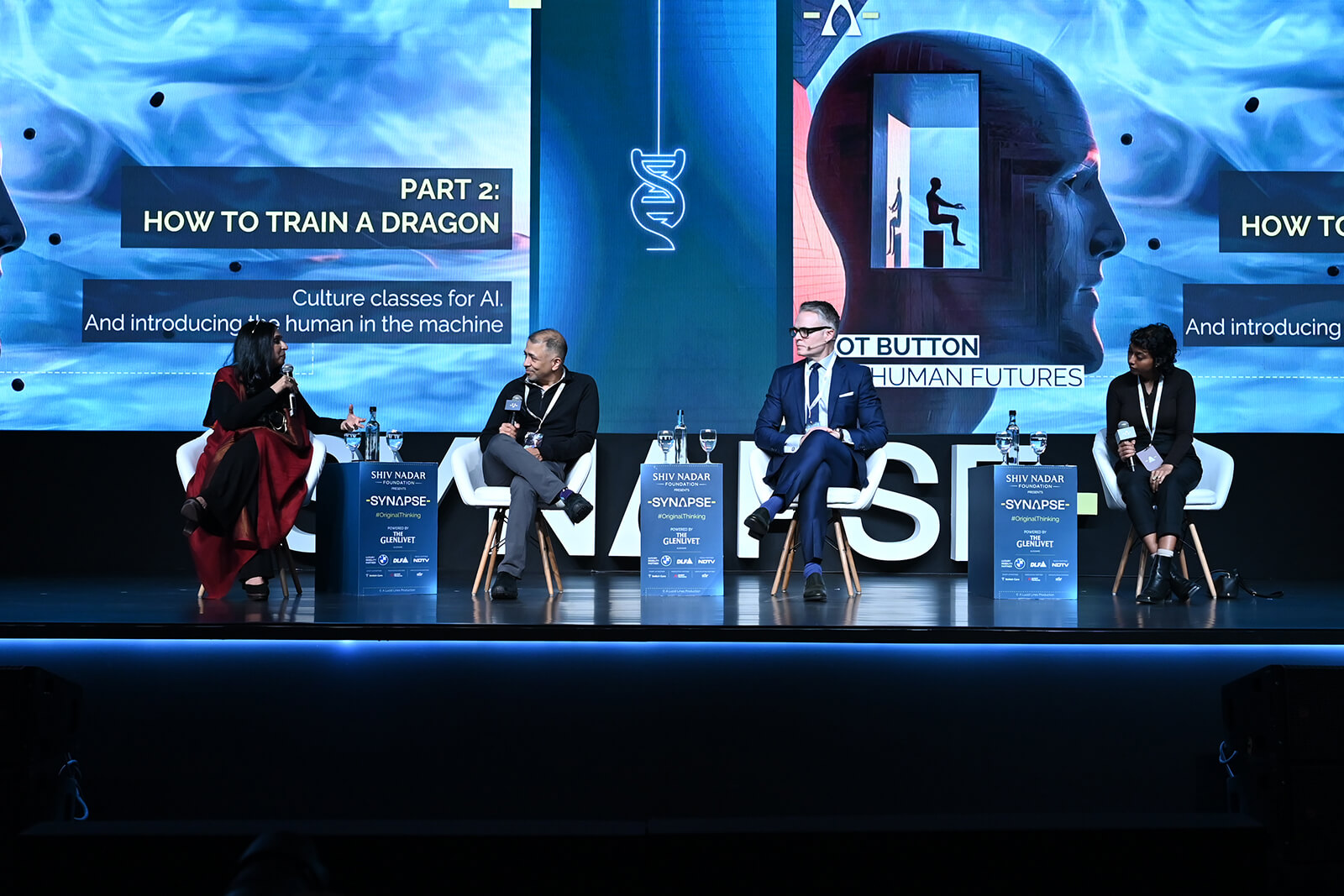
Solaiman offered a complementary perspective on the responsible development of AI. With a focus on aligning cultural values, she highlighted the importance of considering diverse cultural contexts in the design and deployment of AI. His work at Hugging Face, a platform dedicated to the democratization of AI, illustrates a commitment to an inclusive and accessible design in the field of artificial intelligence. The speaker leverages her expertise in bias research and public policy to shape ethical guidelines and standards that promote cultural diversity and equity in AI technologies.
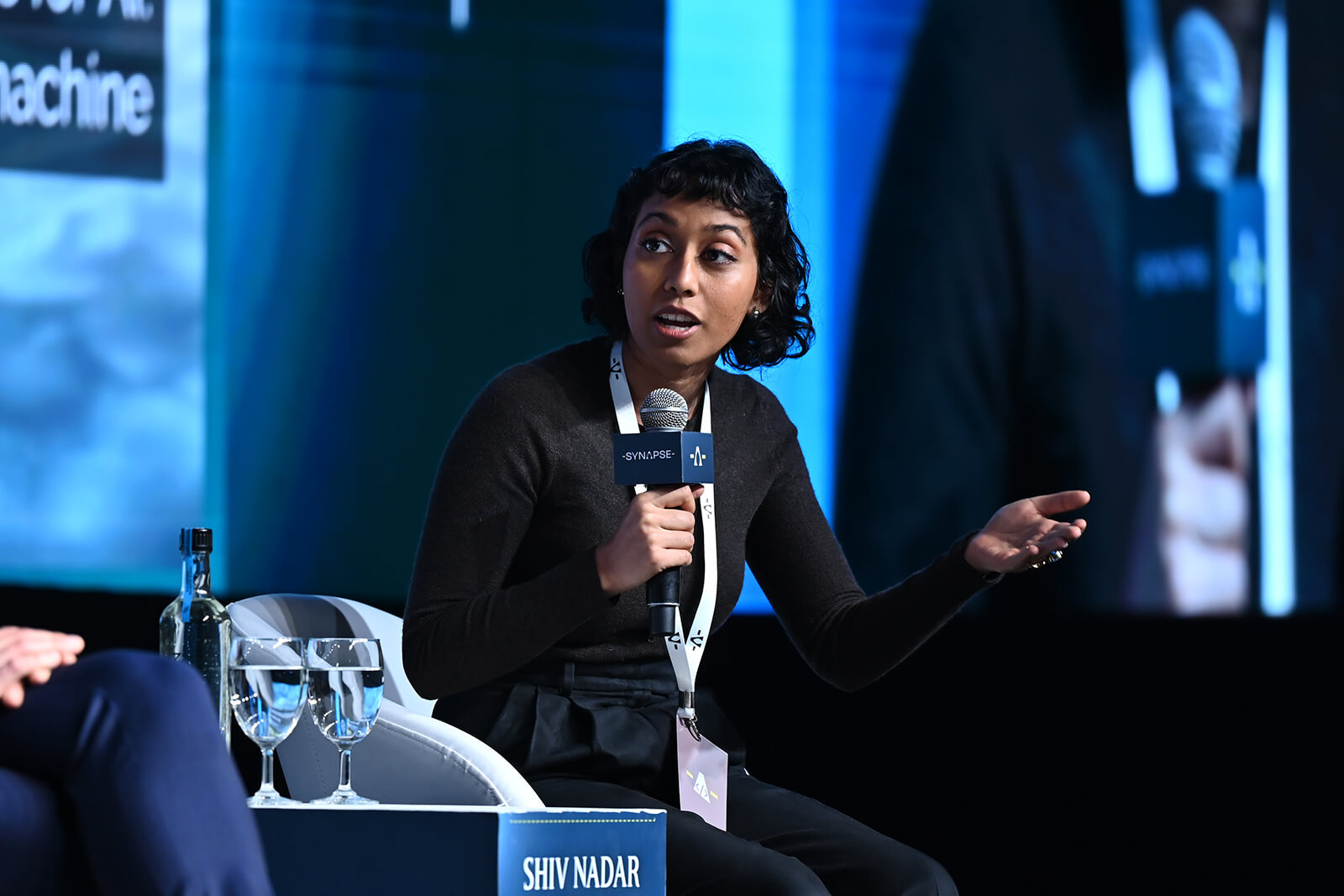
Expanding on her motivation focused on the alignment of cultural values and how systems can be optimized to fit the cultures in which they are deployed, the young researcher elucidates the complexities inherent in reconciling diverse perspectives. “Aligning cultural values is paramount in the development of AI,” she says, emphasizing the need for strong international guidelines and standards. As AI continues to penetrate global societies, it argues for an approach that respects cultural nuances and values, ensuring that AI technologies serve as tools of empowerment rather than instruments of coercion .
One of the main challenges highlighted by Elosman was the ethical dilemma surrounding data collection and confidentiality. Drawing an analogy with baking a cake, he emphasized that data, like ingredients, has no intrinsic value until it is used effectively. He emphasized the importance of transforming raw data into meaningful information that benefits both healthcare providers and patients. Reflecting on his experiences, he highlights the importance of transparency and proactiveness in data sharing. “At Neom, data collection is approached with the greatest sensitivity to the privacy of individuals,” he explains, sharing with STIR the need to demonstrate the tangible benefits of data sharing while preserving individual rights.
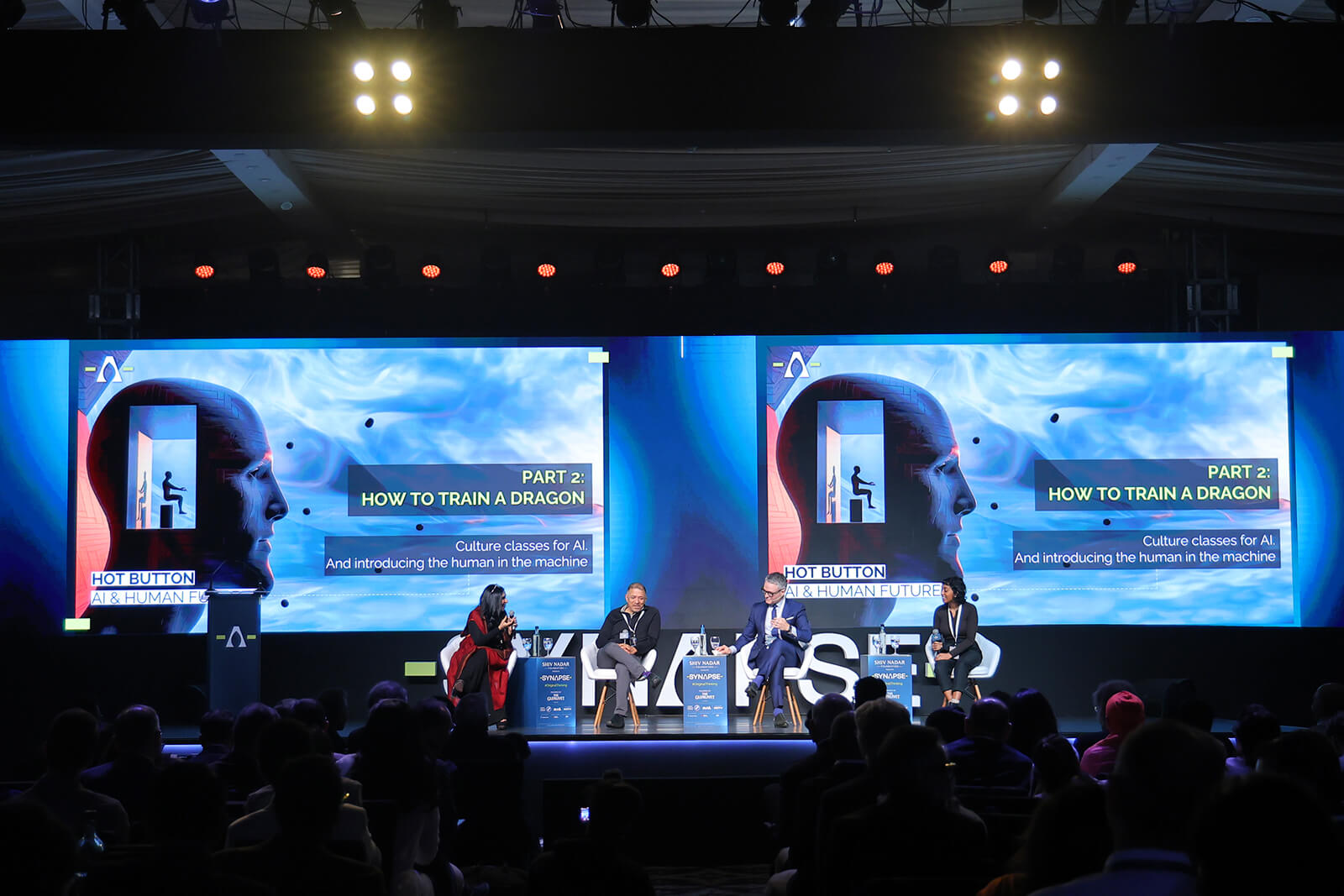
Echoing Elosma’s sentiments, Solaiman highlights the importance of ethical data practices in AI development. She modestly admits to STIR, “I’m not an ethicist,” before discussing the complexities involved. She shared the importance of safety work to address ethical considerations and highlighted the lack of a universal checklist, instead advocating for guidelines and better international standardization. Highlighting the global impact of AI, she emphasized collaboration across borders and disciplines. Additionally, she explained that the responsibility for ethical AI extends beyond technologists, calling for contribution from diverse fields and communities. This inclusive approach is crucial to addressing ethical challenges and ensuring that diverse perspectives are taken into account. Overall, his ideas highlighted the need for continued dialogue and collaboration among stakeholders to shape a future where AI serves the common good.
As the conversation shifted to the symbiotic relationship between human and artificial intelligence, speakers highlighted the mutual benefits inherent in such a partnership. They expressed concerns about the current focus on improving AI capabilities at the expense of human involvement, warning of the potential real-life manifestation of dystopian narratives like Terminator. Highlighting the need for a balanced approach, they recognized the evolving nature of AI systems and the compelling need to prevent their domination of human action. Instead, they argued for systems that complement human expertise rather than supplant it, emphasizing the importance of understanding the nuanced impacts across various sectors and expertise. This perspective, they asserted, is essential to navigating the rapid integration of AI systems and ensuring their alignment with human values and work-related considerations.
Synapse Conclave 2024 is a testament to the power of collaboration and innovation to drive positive change. Through in-depth discussions and thought-provoking presentations, participants gained valuable insights into the opportunities and challenges presented by the intersection of human and artificial intelligence. As society continues to grapple with the complexities of advanced technologies digital technologylessons learned will help shape the future of healthcare, AI and beyond.
Synapse Conclave 2024 focuses on science, technology and society, exploring the exciting and disturbing implications of age reversal, gene editing and Big Data. STIR, as your amplification partner, brings you a series of programming conversations that deserve further consideration.


